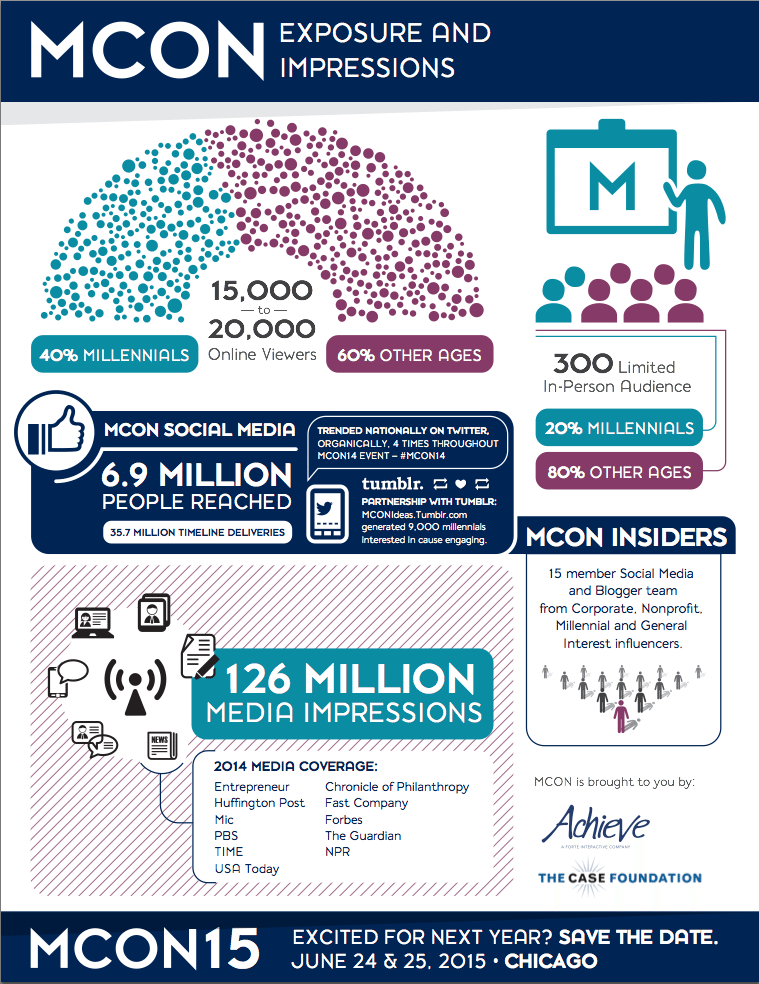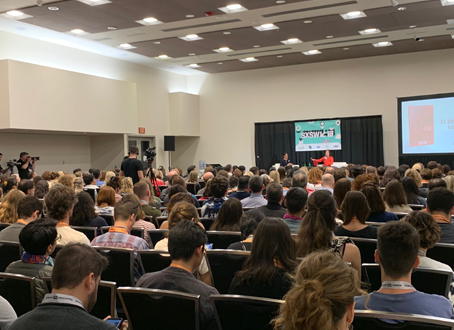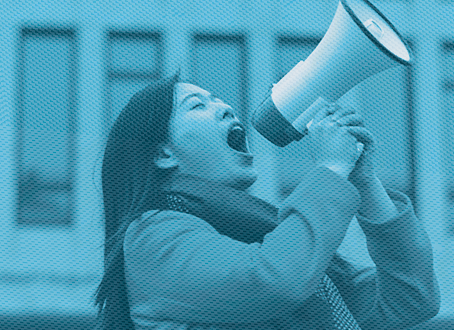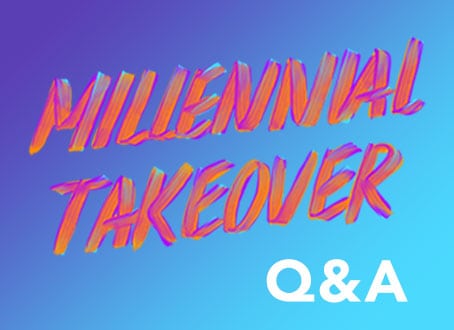This post was written by Derrick Feldmann on behalf of the Case Foundation:
As the song says, we’ve come so far.
Five years ago, Achieve and the Case Foundation foresaw the influence that the generation dubbed “Millennials” would have on our way of life. We also realized that powered by the strongest desire to safeguard and strengthen the world we’ve seen in modern times, this influence would have astounding results.
We decided to help make sure everyone was ready.
This year was MCON14, our fourth conference to present what we know, and how individuals and companies have successfully engaged with Millennials and causes.
Our 2014 Millennial Impact Report, released at MCON, addressed Millennials as employees. So we sought a variety of speakers from the business world – entrepreneurs who are or work with Millennials, corporations with giving campaigns open to Millennial workers, nonprofits founded by or involving Millennials, and related retailers, journalists, funders, filmmakers, social networkers, and political partisans – to let our audience hear about their efforts firsthand.
The engagement that the information received surpassed all of our (already high) expectations. We received 126 million media impressions and we trended on Twitter four times! Check out our infographic for more evidence of the impact we had both on and offline.

I loved it all, of course, but here are a few notable takeaways I experienced or heard about:
Large and small companies have giving campaigns the public barely even knows about. This means they’re doing it not to “look good,” but to actually do good. Corporations like AT&T and Allstate are finding out how much employees care about working for an organization with an authentic CSR program.
The answer is usually simpler than you think. Kohl Crecelius went to Uganda looking for a big solution to the cycle of poverty, and the answer kept coming back to two things:
- Keep it simple. For him, that meant teaching people to crochet. His global business built from there.
- Whatever it is you’re waiting for – permission, the perfect plan, “enough” training/schooling/money – stop waiting. Just start.
Creatives need to know how to code. And it’s OK to turn down the president. Mike McGee convinced me that by learning computer code, you gain the power to build and share your own creative ideas. And that saying “no” to an offer from President Obama to concentrate on your biggest idea is brilliant.
We should start as a “minimum viable product.” Don’t stress if you’re not following a career path. Martin Edlund says take a career hack: Go out into the world, learn the skills you need at the time, and start applying them.
The government wants staff to bond over coffee. Some federal agencies are letting employees have Google+ Hangouts to get to know each other so they can work together better together. That’s just way more cutting-edge than I thought the government was capable of.
Tumblr and karaoke are equally fun. I think every MCON speaker made a GIF in the Tumblr room, and we have gained a new audience at MCONideas.Tumblr.com. And I’ve said all I’m going to say about the karaoke.
Our hope after every MCON is that people like you will be inspired to go back to your employer, friends, family, social networks or wherever else you spend time and apply something you learned at the conference. If you do, we’d love to hear about how it goes.
Related posts:
How we select MCON speakers
Recap: Aine McGlynn, Timeraiser
Recap: Dale Knoop, RAZ Mobile
Derrick Feldmann is the President of Achieve – the creative research agency behind The Millennial Impact Project to understand how Millennials connect, involve, and give to causes. He is the coauthor of Cause for Change: The Why and How of Nonprofit Millennial Engagement published by Jossey Bass, a Wiley Imprint.






